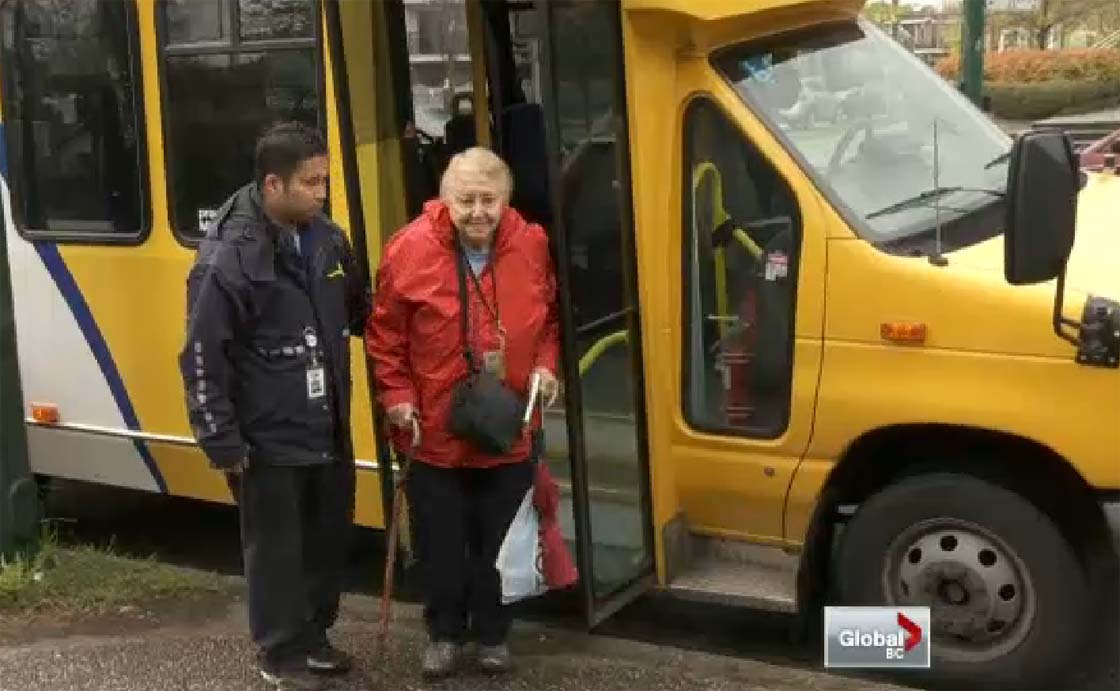Users of Metro Vancouver’s HandyDART system say they’re hoping for service improvements when a new contractor takes over operations.

After a review of the shared-ride service, which provides door-to-door transit for people with cognitive and physical disabilities, TransLink selected First Canada as new operator for the service last December.
It will take over from MVT Canadian Bus on July 1.
However, a new contractor may not be enough for riders with the HandyDART Alliance, who have long called on TransLink itself to take over operation of the service.

Get breaking National news
“I didn’t give anybody permission to make money off my carcass to ride a bus,” said alliance member Beth McKellar.
McKellar said the service is so overburdened that riders need to book trips a week in advance, something she says simply isn’t practical.
“I don’t know anybody in another demographic, like we’ll say able-bodied people and younger people, where they have to book their lives seven days ahead of time,” she said.
McKellar added that even the calls to book a ride are challenging, often involving a 30-minute wait on the phone.
“Then you’re very fortunate, you have that ride booked. But then will the driver be there? Will it be a HandyDART or will it be a god-forsaken taxi?”
In 2014, the province began shifting a greater load from HandyDART to taxis after documents showed tens of thousands of trips were being passed up.
But McKellar said taxis aren’t a good replacement for the service, with drivers often unwilling to get out of their vehicles to assist passengers with mobility problems.
She said a meeting with all sides on the issue is scheduled for later in May.













Comments
Want to discuss? Please read our Commenting Policy first.